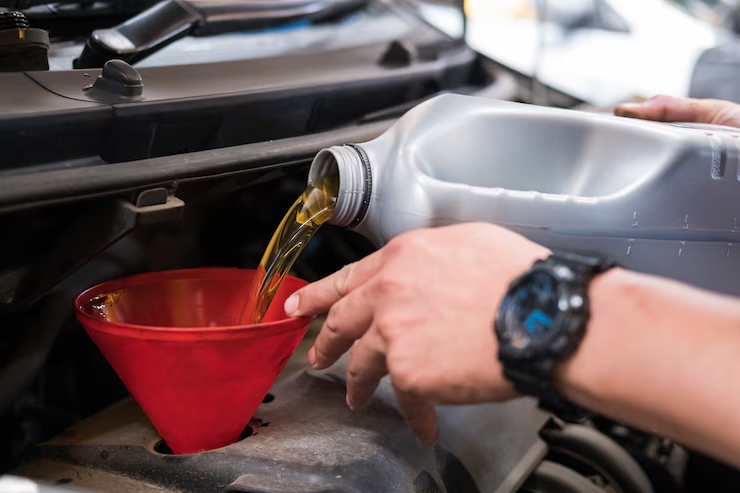Introduction
Every vehicle, whether a daily commuter car or a heavy duty oil change frequency truck relies on oil as its lifeblood. Yet, oil changes one of the simplest and most cost effective maintenance tasks are often delayed or overlooked by many car owners. This negligence can have significant long term consequences for both the engine and the owners wallet.
In this comprehensive article we will explore the importance of regular oil changes how they benefit your vehicle and what happens when you skip them. By the end youll understand why this small routine task is a big deal in the life of your car.
Does Engine Oil Actually Do
The Engines Best Friend
Engine oil plays a critical role in reducing friction between the many moving parts of an engine. Without proper lubrication these components grind. Against each other causing rapid wear and eventual engine failure.
Heat Regulation
As your engine runs it generates an engine oil tips enormous amount of heat. While the cooling system manages a significant portion of this heat engine oil also contributes by absorbing and dissipating excess heat from internal components.
Cleaning and Debris Removal
Engine oil captures dust dirt and metal particles that accumulate inside the engine. Over time the oil filter catches these particles preventing them from damaging sensitive parts.
Corrosion Prevention
Additives in modern engine oils neutralize car lubrication guide acidic compounds and prevent corrosion inside the engine. This protection ensures your engine components remain in good shape over the long haul.
Often Should You Change Your Oil
Manufacturer Recommendations
Most automakers recommend oil changes every. 3000 to 7500 miles depending on the make and model. Always refer to your owners manual for specific guidance.
Driving Conditions Matter
If you regularly drive in extreme conditions such as hot climates stop and go traffic or dusty environments you may need to change your oil more frequently than average.
Synthetic vs Conventional Oil
Synthetic oil generally lasts longer than conventional oil. Vehicles using synthetic oil may only need oil changes every 7500 to 10000 miles while conventional oil users may require more frequent changes.
Signs That You Need an Oil Change
Dashboard Warning Lights
The oil change or check engine light is often the first indicator that somethings wrong. Dont ignore it.
Dirty or Dark Oil
Clean oil has a light amber color. If your oil is black and gritty its time for a change.
Engine Noise and Knocking

Old oil loses its lubricating properties which can lead to increased engine noise or even knocking sounds.
Exhaust Smoke
Visible smoke from the exhaust could indicate. oil issues especially if paired with a burning oil smell.
Benefits of Regular Oil Changes
Prolongs Engine Life
Regular oil changes reduce engine wear car lubrication guide and .tear keeping internal parts functioning smoothly and efficiently.
Improves Fuel Efficiency
Fresh oil reduces engine friction which means. your car doesnt have to work as hard, resulting in better gas mileage.
Reduces Harmful Emissions
Clean oil leads to a cleaner engine which produces fewer harmful emissions and contributes less to environmental pollution.
Enhances Performance
A well-lubricated engine runs more smoothly offering. A better driving experience and less noise.
Happens If You Dont Change Your Oil

Sludge Build-Up
Old dirty oil turns into sludge over time. This sticky substance clogs your engine reduces performance and increases wear.
Engine Overheating
Without proper lubrication and heat dispersion engines overheat leading to gasket failures, cracked cylinder heads and more.
Poor Fuel Economy
Dirty oil increases engine resistance causing it to burn more fuel and perform inefficiently.
Complete Engine Failure
The worst case scenario is complete engine seizure requiring costly repairs or even a full engine replacement.
Choosing the Right Engine Oil
Viscosity Grades
Engine oils are labeled with viscosity grades like 5W 30 or 10W 40. These grades indicate how the oil flows at different temperatures.
Conventional vs Synthetic
Synthetic oils offer better performance, protection and longevity but are more expensive. Conventional oils are cheaper but require more frequent changes.
High Mileage Oils
For older vehicles high mileage oils contain additives that help reduce leaks and protect aging engine parts.
DIY Oil Change vs Professional Service
Pros of DIY Oil Changes
- Cost-effective
- Immediate service
- Personal control over materials used
Cons of DIY Oil Changes
- Time-consuming
- Requires tools and space
- Risk of improper disposal of old oil
Advantages of Professional Service
- Expert inspection
- Safe oil disposal
- Access to better quality filters and oils
Environmental Impact of Oil Changes
Proper Disposal of Used Oil
Used oil is hazardous waste. It must be disposed of at designated recycling centers to prevent environmental contamination.
Eco Friendly Oil Choices
Some synthetic and re-refined oils offer a more sustainable option, reducing waste and resource use.
The Role of Oil Filters
What Oil Filters Do
Oil filters trap debris dirt and metal particles keeping the oil clean as it circulates through the engine.
When to Change Oil Filters
Typically oil filters should be changed every time you change the oil to ensure optimal performance and protection.
Understanding Oil Change Costs
What Affects the Cost
- Type of oil (conventional vs synthetic)
- Type of vehicle
- Labor charges
- Extra services (fluid checks inspections)
Average Price Ranges
- Conventional oil change $30 $50
- Synthetic oil change $60 $100+
Myths About Oil Changes
You Must Change Oil Every 3,000 Miles
While this used to be true, modern engines and oils allow for much longer intervals.
You Can Ignore Oil Changes If the Car Feels Fine
Damage can occur long before any noticeable symptoms arise.
Dark Oil Always Means Dirty Oil
Some oils naturally darken due to heat and additives. The key is whether the oil is gritty or smells burnt.
Future of Oil and Engine Technology
Advanced Synthetic Oils
Innovations in synthetic oils allow for longer intervals and better engine protection than ever before.
Electric Vehicles (EVs)
While EVs dont use engine oil hybrid vehicles still rely on traditional engines and require regular oil maintenance.
Smart Monitoring Systems
New cars increasingly come with smart sensors that notify drivers when an oil change is needed based on driving conditions and oil quality.
Tips for Maintaining Oil Health Between Changes
- Check oil levels monthly
- Use recommended oil type and viscosity
- Avoid short trips that dont warm up the engine fully
- Monitor for leaks under your vehicle
Oil Change Records and Resale Value
Keeping records of regular oil changes can significantly boost your cars resale value. Prospective buyers and dealerships appreciate a well documented maintenance history which assures them the engine has been cared for properly.
Conclusion
Oil changes are the unsung heroes of vehicle maintenance. Despite car lubrication guide their simplicity they have a profound impact on engine health. Vehicle performance fuel efficiency and overall longevity. Whether you prefer to get the job done at a service.
Center or do it yourself the important thing is consistency. By understanding the importance of regular oil changes you not only protect your investment but also ensure a safer smoother and more efficient driving experience for years to come.

